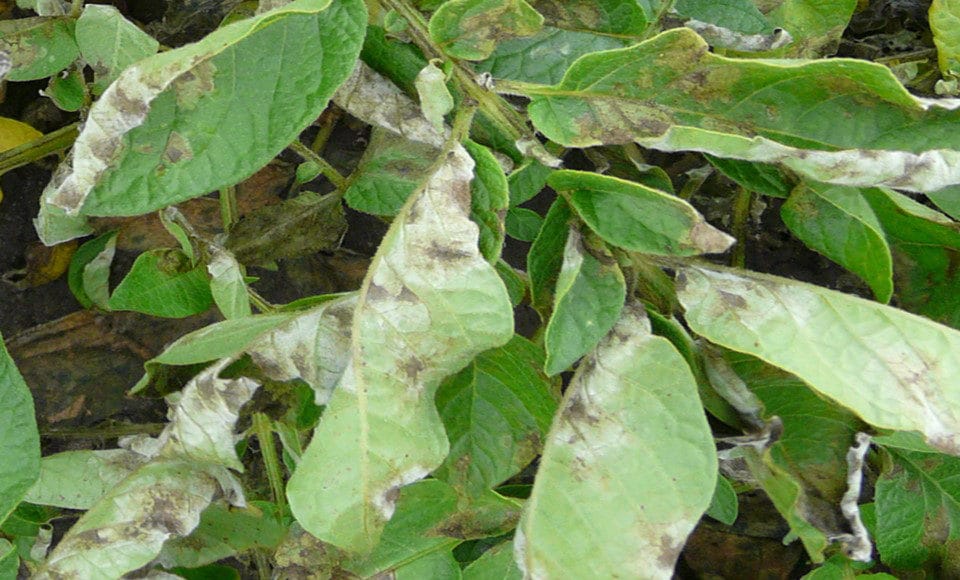Researchers have found a diploid wild potato with a high resistance to the pathogen which causes late blight in potatoes, a news release from the Chinese Academy of Agricultural Sciences and the James Hutton institute published on Sept. 21, says.
Late blight is caused Phytophthorainfestans. In the diploid potato researchers found novel R genes using dRenSeq analysis, further transcriptional analysis identified the essential role of multiple signal transduction pathways and secondary metabolic pathways in plant immunity in the wild potato.
“We found that the observed resistance in this wild potato was due to previously uncharacterized novel resistance genes,” Guangcun Li, one of the scientists involved in the study, explains in the release. “We also discovered that photosynthesis was inhibited to promote the immune response.”
It is a new discovery that photosynthetic inhibition exists in potatoes, the release notes. However, the scientists also found the physical barrier of leaves was very important.
“The leaves of this wild potato are hard and show immunity when inoculated with P. infestansat low concentration,” says Li.
This research provides new resources for potato late blight resistance breeding and a new theoretical basis for disease resistance breeding of potato. To learn more, read “New Findings on the Resistance Mechanism of an Elite Diploid Wild Potato Species JAM1-4 in Response to a Super Race Strain of Phytophthora infestans,” published in the August issue of Phytopathology.











